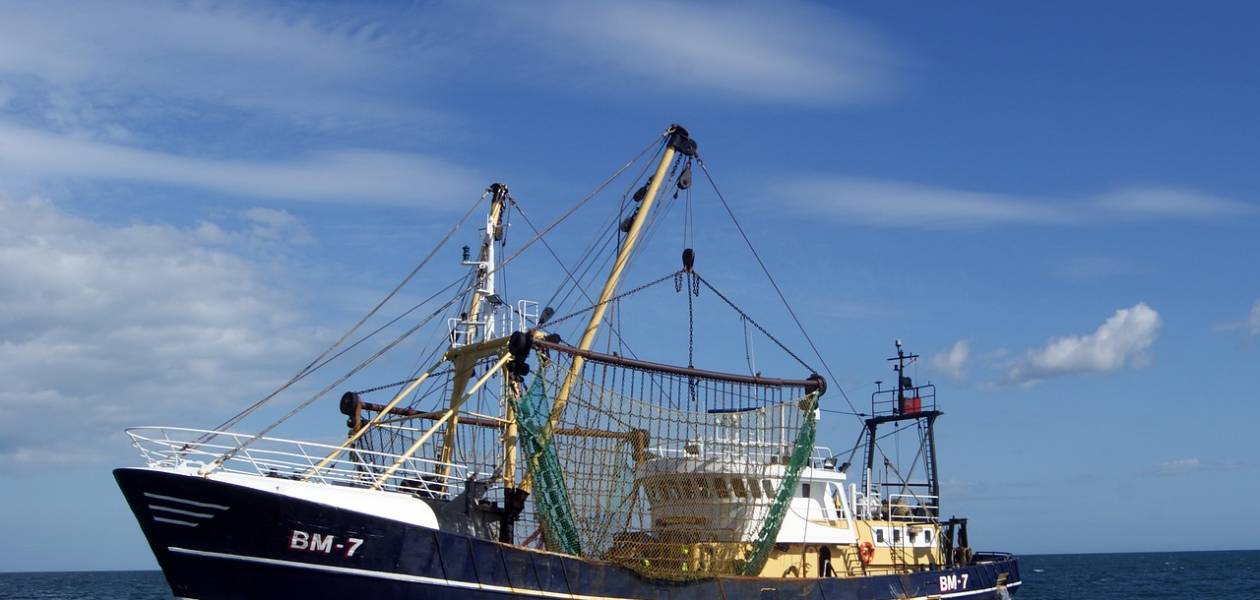
Yesterday, the European Union made public four ambitious proposals for the next Indian Ocean Tuna Commission (IOTC) session taking place from 8 to 12 May 2023. The objective is to improve the conservation of tuna and the management of fisheries. According to the IOTC Scientific Committee, the current situation of the stock and level of fishing in the Indian Ocean are not sustainable. Along with the new proposals, the EU has tabled an objection to the IOTC Resolution 23/02 on the management of drifting Fish Aggregating Devices (FADs).
A high level of ambition
At the next IOTC annual session, the EU will promote the adoption of the following proposals:
- A multiannual plan for the management of tropical tunas, to improve the management of the three tropical tuna stocks (yellowfin tuna, bigeye tuna and skipjack tuna). The IOTC Scientific Committee considers that the current situation of the stock and level of fishing in the Indian Ocean are not sustainable. This multi-species plan would last for 3 years and would bring down the level of catches in line with the scientific advice. Multi-species plans have been successfully adopted and implemented by other regional fisheries management organisations (RFMO) but this would be the first time in the IOTC. The EU proposes a proportional catch reduction taking into account both the current level of catches for each IOTC member and their development status to ensure that developing countries are treated fairly.
- A scheme for the boarding and inspection of vessels in the high seas. Ensuring the inspection of fishing vessels in the high seas is one of the most important and efficient tools to ensure compliance with the IOTC rules and, more importantly, to fight Illegal, Unreported and Unregulated (IUU) fishing activities. IUU fishing is the largest threat to the sustainable management of fisheries and of the marine ecosystem. The EU hopes to build on the initial discussion started in 2022 where most of the Members of the IOTC expressed their support for the proposal.
- An update of the rules of the IOTC Compliance Committee to improve the compliance process, to make sure that fishing activities are conducted in accordance with applicable laws, regulations, and conservation measures. The Compliance Committee is the body that monitors the implementation of the existing rules and obligations by IOTC Members. Compliance has been a weak point of the IOTC and this proposal will identify and address the areas of non-compliance. It will also support developing coastal countries to better monitor their fleets, ports and water under their jurisdiction.
- A new resolution for the management of drifting fish aggregating devices (FADs) to replace Resolution 23/02, adopted in the February special session of IOTC. The EU's objective is to improve the obligations that are technically difficult to implement, to clarify unclear provisions, and to align the text to the scientific advice. The proposal addresses all the relevant aspects of the FAD fishery from marking, to tackling plastic pollution to limiting the number of FADs while also improving the most challenging provisions from Resolution 23/02 to ensure its effective implementation.
Objection to the resolution on Fish Aggregating Devices (FADs)
In addition to the submission of the improved proposal on FADs, the EU has also decided to object to IOTC Resolution 23/02.
In the February 2023 IOTC special session on FADs, Resolution 23/02 on the management of drifting FADs was adopted by majority vote, against all IOTC Members fishing on drifting FADs. As a result, many IOTC members have lodged an objection to that resolution, including the EU, the Comoros, Oman, Kenya, the Seychelles and the Philippines.
The EU believes that IOTC members should work in a cooperative manner and all efforts should be exhausted to reach consensus. Conservation measures should not include provisions that are not implementable or unclear. It is also essential that management decisions in RFMOs are underpinned by scientific advice.
Following their objection, the objecting countries, will not be bound by this resolution and will not have to implement all its provisions.
Background
The Indian Ocean Tuna Commission (IOTC) is the regional fisheries management organisation (RFMO) mandated to manage the fisheries on tuna and tuna-like species in the Indian Ocean and adjacent seas. It was established in 1993 and entered into force in 1996.
It is an intergovernmental organisation gathering the countries bordering the Indian Ocean and the countries having an interest in the tuna fisheries in the area. The objectives are to promote cooperation among its members for the conservation and optimal utilisation of the tuna stocks in the area and to ensure the establishment of a sustainable fisheries in the region. To achieve these objectives, IOTC members meet annually, discuss and adopt measures for the conservation and management of tuna and tuna-like species.
The EU became a member of IOTC in 1995. The other members of IOTC are Australia, Bangladesh, China, Comoros, Eritrea, France on behalf of its overseas territories, India, Indonesia, Iran, Japan, Kenya, Korea, Madagascar, Malaysia, Maldives, Mauritius, Mozambique, Oman, Pakistan, Philippines, Seychelles, Somalia, Sri Lanka, South Africa, Sudan, Tanzania, Thailand, the United Kingdom and Yemen.
More information
Proposals from the European Commission for the IOTC session of May 2023:
Quote(s)
"The EU is committed to the sustainable management of fisheries at global level. With our proposals for the IOTC, we aim to improve the conservation of tuna and drastically reduce the illegal, unreported and unregulated (IUU) fishing activities. We are also proposing a revised resolution on drifting Fish Aggregating Devices as we consider that some provisions of the resolution adopted in the February are not implementable and unclear and not based on scientific advice. The EU wishes that in the coming session IOTC Members will work in a cooperative manner and through consensus." Virginijus Sinkevičius, Commissioner for Environment, Oceans and Fisheries - 11/04/2023
- European Commission
Posted on 2023-04-12 18:25








Comments